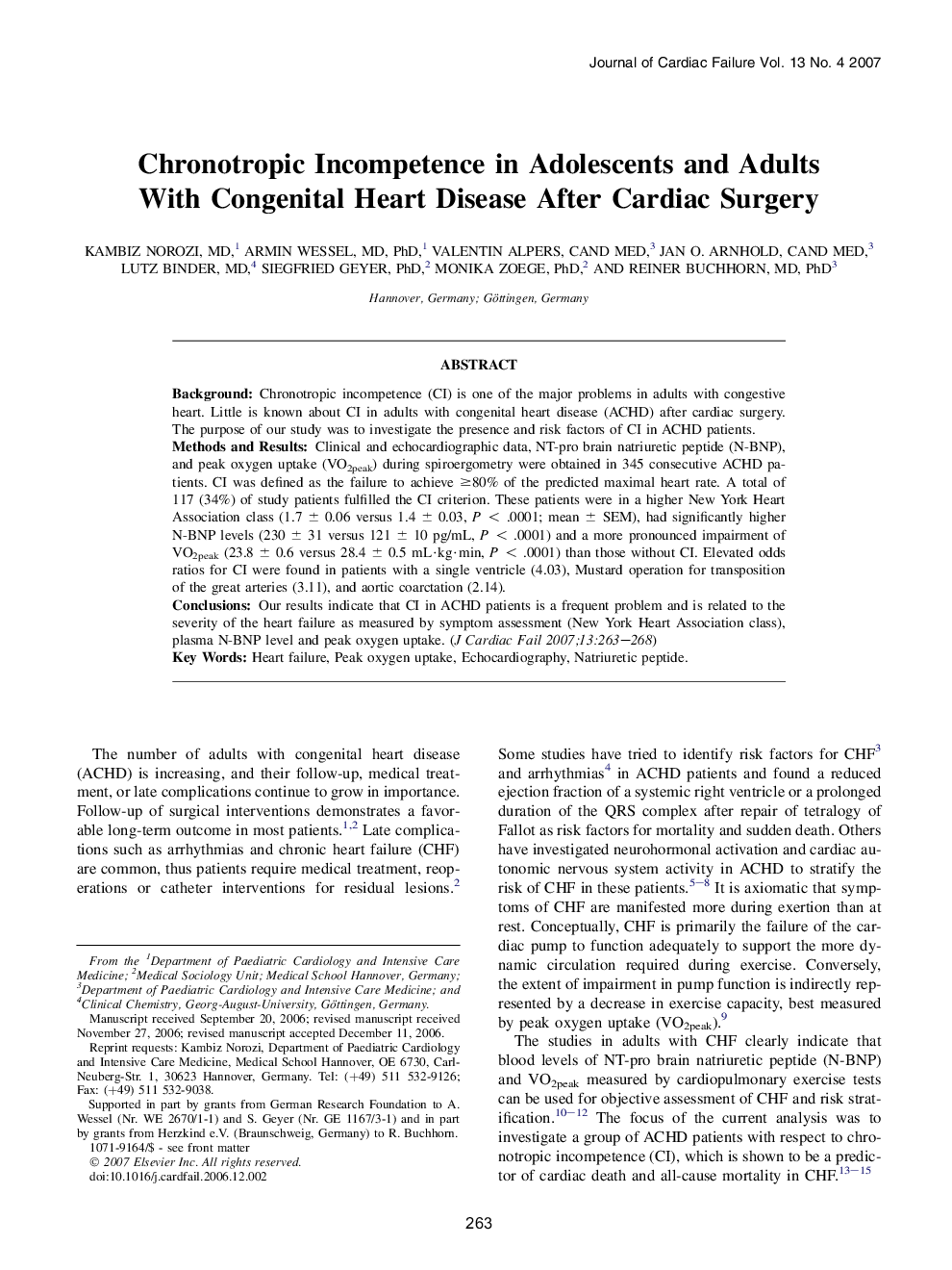| Article ID | Journal | Published Year | Pages | File Type |
|---|---|---|---|---|
| 2962518 | Journal of Cardiac Failure | 2007 | 6 Pages |
BackgroundChronotropic incompetence (CI) is one of the major problems in adults with congestive heart. Little is known about CI in adults with congenital heart disease (ACHD) after cardiac surgery. The purpose of our study was to investigate the presence and risk factors of CI in ACHD patients.Methods and ResultsClinical and echocardiographic data, NT-pro brain natriuretic peptide (N-BNP), and peak oxygen uptake (VO2peak) during spiroergometry were obtained in 345 consecutive ACHD patients. CI was defined as the failure to achieve ≥80% of the predicted maximal heart rate. A total of 117 (34%) of study patients fulfilled the CI criterion. These patients were in a higher New York Heart Association class (1.7 ± 0.06 versus 1.4 ± 0.03, P < .0001; mean ± SEM), had significantly higher N-BNP levels (230 ± 31 versus 121 ± 10 pg/mL, P < .0001) and a more pronounced impairment of VO2peak (23.8 ± 0.6 versus 28.4 ± 0.5 mL·kg·min, P < .0001) than those without CI. Elevated odds ratios for CI were found in patients with a single ventricle (4.03), Mustard operation for transposition of the great arteries (3.11), and aortic coarctation (2.14).ConclusionsOur results indicate that CI in ACHD patients is a frequent problem and is related to the severity of the heart failure as measured by symptom assessment (New York Heart Association class), plasma N-BNP level and peak oxygen uptake.
